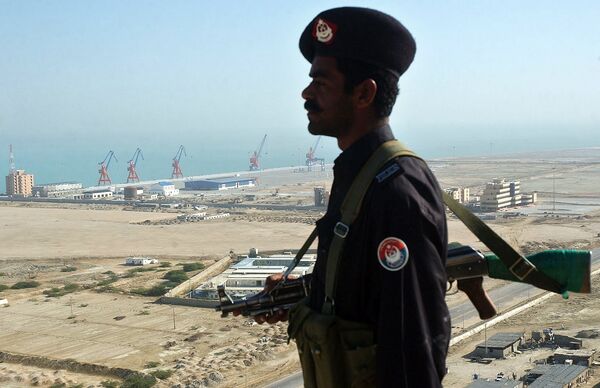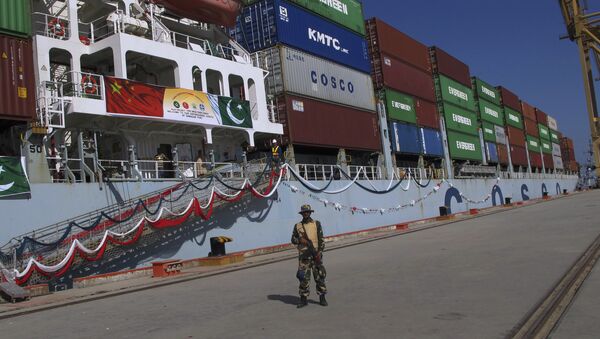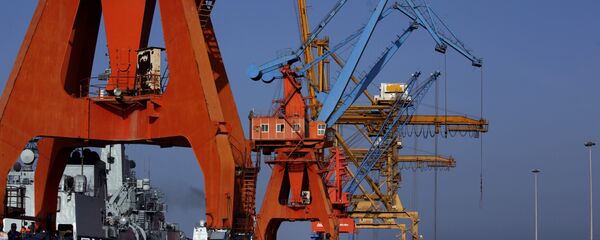One day before, a violent terrorist attack struck Balochistan province, where Gwadar is located, resulting in the death of at least 50 people. This attack was claimed by Daesh and was aimed at damaging projects financed by China, the South China Morning Post reported referring to Pakistani officials.
Pakistani Prime Minister Nawaz Sharif attended the ceremony in Gwadar on Sunday despite the destabilization in the region caused by the terrorist attack on the eve. He assured that Islamabad would raised security measures to protect the project, so that foreign business could feel safe using the Chinese controlled port of Gwadar.
Additionally, it was reported on Sunday that the first convoy of Chinese trucks carrying cargo for the China Pakistan Economic Corridor (CPEC) had arrived to Pakistan from China. On this occasion Pakistan reaffirmed its determination to fulfill its security obligations to CPEC and the Gwadar port.
This Spring, Islamabad reported on the formation of special military units for protection of CPEC. It also said that Chinese soldiers would serve alongside the Pakistani military. It is the first time that Chinese military forces have been used abroad for protection of the country’s economic interests.

China plans to invest 46 billion dollars in CPEC over ten years, Russian expert on South Asia and the Middle East Stanislav Tarasov told Sputnik China.
“China’s influence in Pakistan is very strong, but now China makes it even stronger. Afghanistan also falls under Chinese influence,” Tarasov said.
“After American policy in the region failed, a geopolitical vacuum emerged. China is filling this vacuum now. There are even reasons to believe that China has reached out for negotiations with Pashtuns, Balochs, and radical Islamists,” Tarasov explained.
The expert also assumed that China is quite active in the region, not only through official channels, but also through its intelligence activities.
“China is building communicative routs in different directions creating a network which will strengthen its influence in Arab countries and Africa where its investments are really large,” Tarasov said.
The expert expects that as Chinese influence in the region grows, its risks will grow too. For example, the issues of the Beloch could be played against China.
“On the on hand, Arab and African countries are ready to cooperate with China. On the other hand, there are forces which use Islamists to destroy the existing energy, transport and communication facilities,” Tarasov explained.
He is inclined to regard the actions of such forces in the context of the competition between China and the USA. The same is true for the Beloch people, Tarasov added, recognizing that now it is hard to presume how exactly the issue of the Belochs will be played out.
“The fact is that today some forces are trying to use the Beloch people, and we cannot exclude the possibility that attacks on the economic interest of China in Pakistan are made with Belochs’ hands,” Tarasov concluded.
The Beloch people inhabit areas lying on the territories of Pakistan, Afghanistan and Iran. They support separation and self-determination from their ruling countries. Their separatist sentiment has been used by Islamist and terrorists as a tool for struggle, allowing legitimate powers to discredit their policies.




